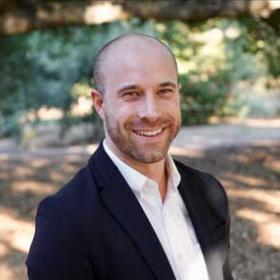
In Memoriam: Donald M. Kendall (1921-2020)
The EastWest Institute (EWI) respectfully acknowledges the passing of former CEO of Pepsi-Cola and PepsiCo Donald M. Kendall.
A National Business Hall of Fame laureate, Donald Kendall was recognized as a giant of American industry, using his position to advance the cause of international understanding and to promote human equality and justice.
Kendall was a major force during EWI’s formative years. He served for 15 years as a member of the EastWest Institute’s Board of Directors and for many years as Chairman of the Board. He supported and launched the institute’s first overseas office in Prague with EWI founder and CEO John Edwin Mroz.
During his tenure with the institute, Kendall championed many EWI initiatives in particular, efforts to reset relations between the United States, Eastern Europe and Russia. In 2003, he co-founded the Kendall-Russell Centre for Corporate Competitiveness in Moscow to break up economic and political gridlocks that prevent an efficient and effective free market economy in Russia. Reflecting on EWI’s legacy, Kendall said “I am especially encouraged by the growing role of the private sector in all areas of the institute’s work, as I believe that cooperation among the public, private and non-profit sectors is a necessity as we confront the complex problems of the next Century.”
“He was a tremendous leader at EWI—ever the mentor, he used his remarkable global experience to encourage EWI programs to include training and mentoring for the next generation of leaders” commented Karen Linehan Mroz, Board Member of the EastWest Institute. “To his wonderful wife, Bim, and the entire Kendall family, we extend our deepest sympathies on the loss of a great man, a wonderful husband and father.”
Kendall was born on March 16, 1921 in Sequim, Washington, where he grew up on a dairy farm milking cows twice a day. He was a star football player in high school and earned a scholarship from Western Kentucky State College. It was there, in Bowling Green, that he started his career as a salesman, insisting that a shoe store pay him on commission.
Kendall joined Pepsi-Cola Company as a fountain syrup sales representative following distinguished service in World War II as a Naval aviator. He advanced from sales to managing a sales crew, to managing sales for all company-operated plants and by 1957, Kendall became President of Pepsi-Cola's overseas operations. Under his leadership, Pepsi-Cola's international presence expanded dramatically; Pepsi-Cola became available in 103 counties, tripling sales.
Kendall was named President and Chief Executive Officer of Pepsi-Cola Company in 1963 and in 1965, Kendall engineered the merger that brought Pepsi-Cola Company together with Frito-Lay to create PepsiCo, Inc. Kendall was appointed President and Chief Executive Officer of the new company and in 1971, elected Chairman and Chief Executive Officer—a position he held until his retirement.
Under Kendall's leadership, PepsiCo became one of the largest corporations in the United States. PepsiCo divisions also expanded their operations to new areas of the world, including the former USSR and the Peoples’ Republic of China.
Recognition of Kendall's leadership has extended beyond the business world. He was the 1989 recipient of the prestigious George F. Kennan Award for his outstanding contribution to improving U.S.-Soviet relations.
In 1986, the NAACP Legal Defense and Educational Fund honored him with the first Equal Justice Award. The Fund recognized his leadership in public affairs and social responsibility, noting: "By demonstrating throughout his career a genuine openness of mind, a restless searching for fresh opportunity and a spaciousness of vision often all too rare in the higher reaches of corporate life, Don Kendall has provided for future generations a model of enlightened, progressive and authentic patriotism—blended with true citizenship of the world and a lifelong, unshakable dedication to the cause of equal justice."
With his support, PepsiCo named Harvey C. Russell Jr. the first Black vice president of a major U.S. company in 1962. When the Ku Klux Klan organized a boycott of Pepsi, Kendall responded by naming a second Black corporate officer.
Throughout his career, Kendall was extremely active in a wide variety of key cultural, economic and political organizations, both domestically and internationally. Major appointments include: National Alliance of Businessmen (Chairman, 1969; director for eight years), US-USSR Trade and Economic Council (first US Co-Chairman, 1973-1977), Emergency Committee for American Trade (Chairman, 1969-1976), the Chamber of Commerce of the United States (Chairman of the Board, 1981-1982), National Center for Resource Recovery, Inc. (Chairman from 1970 to 1976), Grocery Manufacturers of America (Chairman from 1969-1971) and the American Ballet Theatre Foundation (Chairman of the Board, 1977-1983).
Kendall's dedication to the arts is perhaps most evident in the outstanding collection of 20th century outdoor sculpture in the Donald M. Kendall Sculpture Gardens that surround the PepsiCo’s headquarters in Purchase, New York. The gardens feature works by major artists such as Rodin, Calder and Moore and is considered the foremost corporate sculpture garden in the world.
He is survived by his wife of 55 years, former German Baroness Sigrid Rüdt “Bim” von Collenberg; two children from his first marriage, Edward and Donna Kendall; two children from his second marriage, Kent and Donald Kendall Jr.; and 10 grandchildren.
Click here to read a statement and tribute to Kendall on PepsiCo’s website.




